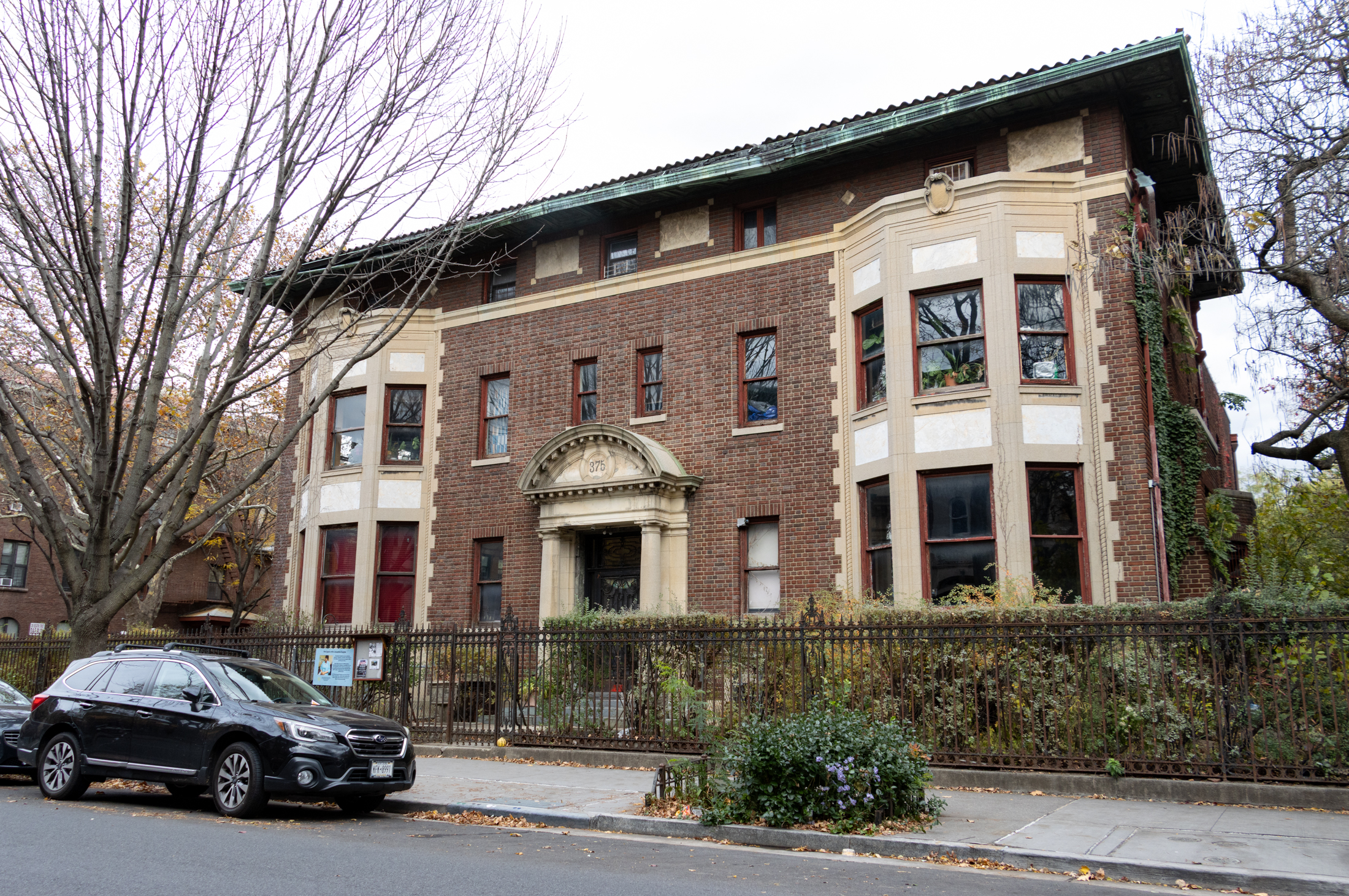Closing Bell: De Blasio Unveils Affordable Housing Plan, Including for Middle Class
Mayor Bill de Blasio revealed his $41.1 billion plan to build and preserve 200,000 units of affordable housing over the next decade at a press conference this morning in Fort Greene. Standing in front of a mixed-income construction site, the mayor laid out the broad strokes of his plan to maintain 120,000 affordable apartments and…


Mayor Bill de Blasio revealed his $41.1 billion plan to build and preserve 200,000 units of affordable housing over the next decade at a press conference this morning in Fort Greene. Standing in front of a mixed-income construction site, the mayor laid out the broad strokes of his plan to maintain 120,000 affordable apartments and construct 80,000 more.
One of the mayor’s key points was implementing mandatory inclusionary zoning, which would require developers to include affordable units when building in newly rezoned areas. To spur more affordable development, the city wants to initiate at least 10 rezonings within the next several years.
“This plan, over the next 10 years, will create opportunity for so many people who are currently priced out of the city,” said de Blasio. “It will be a central pillar in the battle against inequality.”
Going forward, the administration will abandon the Bloomberg era’s model of 80 percent market rate and 20 percent affordable apartments. It is not clear what the new breakdown will be for mandatory affordable units, but the city will also introduce a new program of 100 percent affordable buildings targeted at keeping the middle class in New York City. Those buildings will be 50/30/20, meaning that 20 percent of units will be set aside for low-income households, 30 percent for moderate income households and 50 percent for middle-income households.
His administration also hopes to “increase the number of units available for families making less than around $40,000 a year by 200 percent, and boost the number available for moderate-income families making between $67,121 and $100,680 a year by 50 percent from previous levels,” the Observer reported.
City Planning Chair Carl Weisbrod said he plans to study several neighborhoods that could accommodate denser development, including East New York. He also wants more development on top of rail yards throughout Brooklyn and Manhattan, such as Atlantic Yards. Some of the areas that have been floated for upzoning in recent days include Broadway and Atlantic Avenue in Brooklyn.
You can read the press release, and check out the 115-page affordable housing plan PDF here. What do you think of the strategy?
Update: A representative of the Mayor’s office at the Bed Stuy Community Board 3 meeting tonight told us the proportion of affordable housing in mandatory inclusionary buildings is not fixed and will be decided on a case by case basis.
Photo via NYC Mayor’s Office





meanwhile, we haven given away park land to private developers and undervalued it!
“Save Pier 6 But opponents of condominium development in the park say the high prices achieved by Toll Brothers raise questions about whether the city had undervalued the park land and whether it should have been used for housing at all. City property records show the park turned the land over in 2012 to Toll Brothers for $42.5 million under a 97-year lease in the first place.
“This is yet another reason we shouldn’t put any more housing in Brooklyn Bridge Park,” said state Sen. Daniel Squadron, a Brooklyn Democrat.”
http://online.wsj.com/news/articles/SB10001424052702303647204579544271104755500?mg=reno64-wsj&url=http%3A%2F%2Fonline.wsj.com%2Farticle%2FSB10001424052702303647204579544271104755500.html
Love the stats that speak the truth!
Sounds great for the mega developers but for small ones not really economical feasible.
When any Government decides policy on a case by case basis-its the mega rich political donors that will have the advantage at the expense of the average citizen.
Cant believe it but I’m missing Bloomberg.
Deblasio’s two strong points in the election was public housing and LICH. Analyzing the LICH fiasco shows that he does not have leadership skills. I hope he will do better with the housing issue, or many people will be hurt.
Should be “The notion that reducing or eliminating rent control and stabilization will lower rents…” Oopsie.
The notion that reducing or eliminating rent control and stabilization is a load of “invisible hand of the market” baloney. Did rents go down when Boston/Cambridge eliminated rent stabilization? No, they did not.